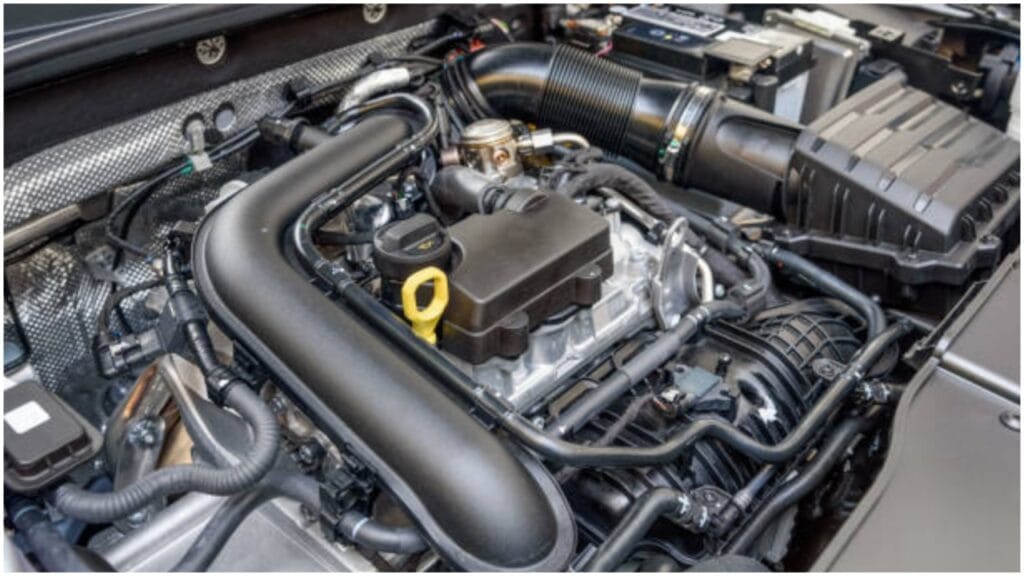Water consumption in engines can stem from several problems, ranging from internal leaks to cooling system failures. This article explores the key reasons an engine might consume excessive water.
Leaking Head Gasket
A blown head gasket is one of the most common causes of high water consumption in an engine. The head gasket seals the engine block and cylinder head.
Coolant (primarily water) can leak into the engine cylinders when it fails. This allows water to mix with the engine oil or burn off during combustion.
Either way, the engine consumes more water than usual, as the coolant is constantly lost.
Cracked Engine Block or Cylinder Head
Another significant reason for water consumption is a cracked engine block or cylinder head. These critical components house the engine’s pistons and cylinders. Coolant can leak into the engine’s combustion chamber when a crack develops.
This is particularly problematic because the coolant may evaporate in the chamber or burn off with the fuel, forcing the engine to consume additional water.
Overheating of the Engine
Engines that frequently overheat often consume more water. Overheating may occur due to a malfunctioning thermostat, a blocked radiator, or insufficient coolant.
When an engine overheats, the coolant system struggles to maintain the necessary temperature. As a result, water evaporates more quickly and is consumed in more significant amounts.
Faulty Water Pump
The water pump is an essential component of the engine’s cooling system. It circulates coolant (or water) through the engine to prevent it from overheating.
If the water pump malfunctions, it may fail to circulate the coolant properly, leading to an imbalance in the cooling system.
This can cause excessive water consumption as the engine tries to cool itself by consuming more coolant than necessary.
Broken Radiator
A damaged or malfunctioning radiator can also cause an engine to consume more water. The radiator is responsible for dissipating heat from the coolant as it circulates through the engine.
If the radiator is blocked or leaks, the cooling process is compromised. The coolant can overheat or evaporate too quickly, increasing water consumption.
Condensation from the Exhaust System
In some cases, engines can appear to consume water due to condensation in the exhaust system. When an engine operates, especially in cold weather, it produces moisture as a byproduct of combustion.
Moisture can accumulate in the exhaust pipes, which may appear to be water consumption. This moisture is typically harmless and evaporates once the engine warms up.
Improper Coolant Mixture

Using the wrong coolant mixture can contribute to excessive water consumption. Coolants are designed to have a specific water-to-antifreeze ratio that helps prevent overheating and freezing.
If the mixture is diluted with water or concentrated with antifreeze, it may not perform optimally, leading to increased water consumption.
Air in the Cooling System
Air trapped in the engine’s cooling system can also increase water consumption. When air pockets form in the cooling system, the coolant cannot flow freely, leading to overheating.
Overheating causes the engine to consume more water as the system struggles to regulate temperature. To avoid this, it’s important to regularly check and bleed the cooling system to ensure no air is present.
Worn Out or Damaged Radiator Hoses
Radiator hoses play a crucial role in carrying coolant through the engine. These hoses can become worn, cracked, or damaged. Coolant may leak out when this happens, leading to excessive water consumption.
Engine Design and Age
Older engines or those with design flaws may naturally consume more water. As engines age, various components, such as the seals and gaskets, wear out.
This wear and tear can result in small leaks that allow coolant to escape. In some cases, the engine’s cooling system may have design limitations that make it less efficient and consume more water than newer, more efficient models.
Improper Engine Maintenance
Neglecting routine engine maintenance can lead to excessive water consumption. Regular checks of the cooling system, radiator, hoses, and coolant levels are essential for preventing issues that can cause water loss.
For example, failing to replace worn hoses or top up coolant regularly can lead to leaks and overheating, which ultimately results in the engine using more water. An engine in poor condition often consumes more water than a well-maintained one.
Conclusion
Several factors can lead to an engine consuming excessive amounts of water. Each issue, from a blown head gasket to a faulty water pump or improper maintenance, can significantly impact the engine’s cooling system and water consumption rate.
Regular checks and addressing issues promptly can prevent these problems and help maintain the engine’s efficiency.

